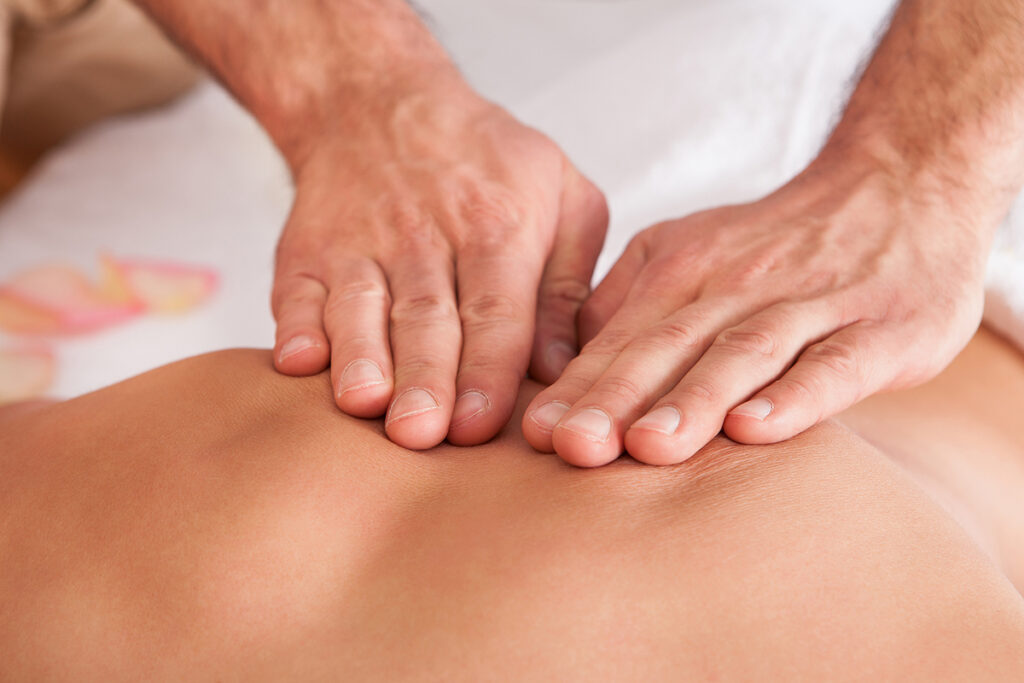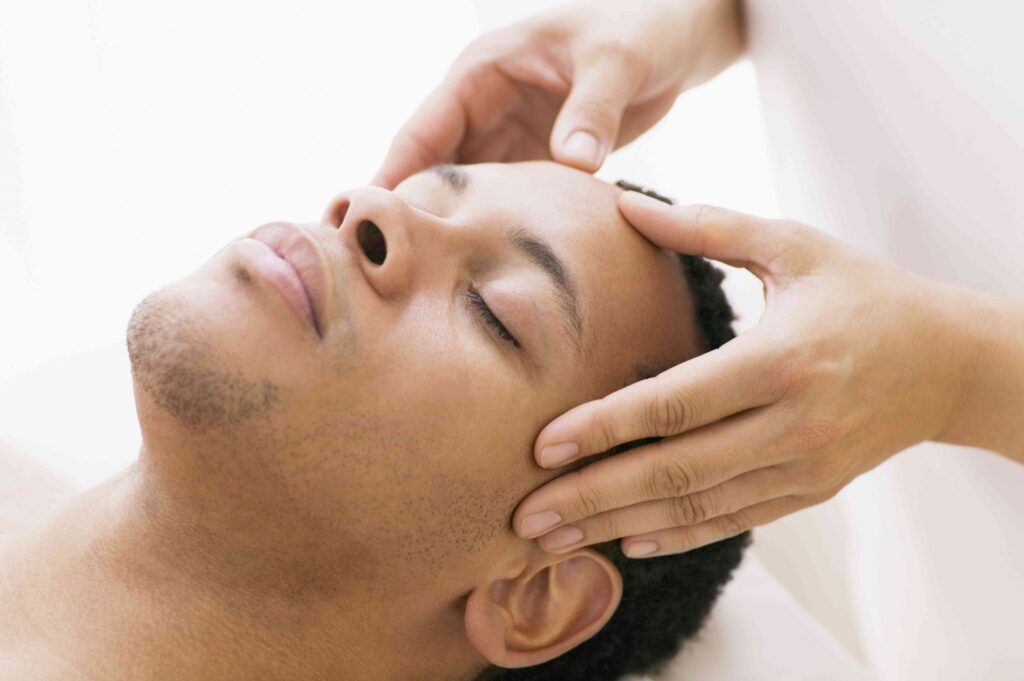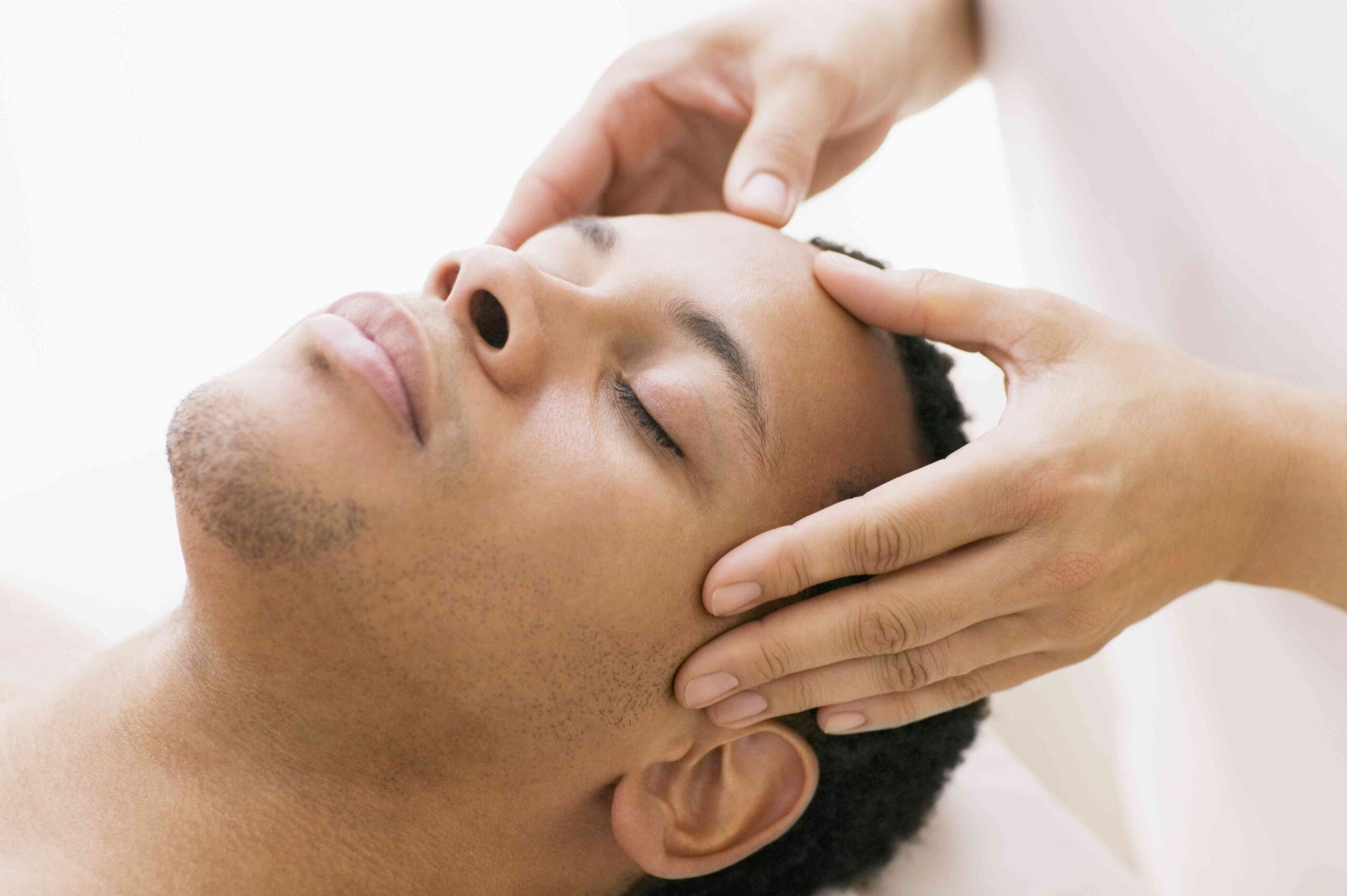Therapeutic massage, also known as medical massage, is a widely practiced form of bodywork that involves the application of pressure and manipulation techniques to alleviate pain, reduce stress, and improve overall well-being. This article explores the various uses of therapeutic massage, ranging from treating specific medical conditions to promoting relaxation and self-care. Discover how this ancient healing art can be a beneficial tool in your quest for optimal health and vitality.
Relaxation and Stress Relief
Promotes relaxation
Therapeutic massage is commonly used to promote relaxation and provide stress relief. The gentle pressure applied during a massage session helps to calm your mind and relax your body. As the skilled hands of the therapist glide over your muscles, you can feel the tension melt away. The soothing touch and rhythmic movements of the massage stimulate the release of endorphins, which are natural feel-good hormones that promote a sense of relaxation and well-being.
Reduces stress and anxiety
In today’s fast-paced and demanding world, stress and anxiety have become all too common. Therapeutic massage offers a natural and effective way to manage and reduce stress levels. The massage techniques used by therapists target the physical manifestations of stress, such as muscle tension and knots. By releasing these areas of tension, the massage helps to alleviate the associated psychological stress and anxiety. As you sink into deep relaxation during a massage session, you will feel the worries and tension of everyday life melt away.
Improves sleep quality
If you struggle with sleep issues or insomnia, therapeutic massage can be a valuable tool in improving the quality of your sleep. During a massage, the deep relaxation achieved helps to regulate your body’s sleep-wake cycle, also known as the circadian rhythm. Moreover, the release of endorphins, mentioned earlier, not only promotes relaxation but also aids in regulating sleep patterns. By incorporating regular massages into your routine, you may find yourself experiencing deeper, more restful sleep, leading to increased energy levels and improved overall well-being.
Pain Management
Relieves muscle pain and tension
Therapeutic massage is highly effective in relieving muscle pain and tension. The skilled touch of a therapist can help identify areas of particular tightness or discomfort and apply targeted techniques to release the tension. The manual manipulation of soft tissues promotes blood flow to the affected area, allowing for the removal of toxins and the delivery of essential nutrients, resulting in pain relief and muscle relaxation. Whether you are struggling with general muscle soreness or specific areas of tightness, therapeutic massage can provide much-needed relief.
Alleviates chronic pain conditions
For individuals suffering from chronic pain conditions, therapeutic massage can offer significant relief and improvement in daily functioning. Conditions such as fibromyalgia, arthritis, and lower back pain can be effectively managed through regular massage sessions. The combination of improved blood flow, reduced muscle tension, and the release of endorphins can help alleviate pain and enhance overall well-being. Massage therapy can be a valuable part of a comprehensive pain management plan, providing non-invasive and drug-free relief from chronic pain.
Reduces headache and migraine intensity
Headaches and migraines can be incredibly debilitating and negatively impact your quality of life. Therapeutic massage has been shown to be an effective and natural way to reduce the intensity and frequency of headaches and migraines. The targeted techniques used by massage therapists can help relax the muscles in the neck, shoulders, and head, which often contribute to headache pain. Furthermore, the release of endorphins during the massage can provide natural pain relief and promote a sense of calm, alleviating the stress and tension associated with headaches.

This image is property of i0.wp.com.
Injury Rehabilitation
Aids in recovery from sports injuries
Therapeutic massage plays a crucial role in the rehabilitation process following sports injuries. Whether you are recovering from a sprained ankle, a pulled muscle, or a more severe injury, massage can help speed up the healing process and restore your range of motion. Through a combination of massage techniques, the therapist will target the injured area, promoting blood flow and reducing inflammation. The increased circulation brings much-needed nutrients to the injured tissues, aiding in their repair and regeneration.
Improves flexibility and range of motion
Injury or prolonged inactivity can lead to a loss of flexibility and restricted range of motion. Therapeutic massage can be instrumental in improving these areas and restoring optimal function. The various techniques used during a massage session help to stretch and lengthen the muscles, tendons, and ligaments. By doing so, massage encourages increased flexibility, allowing for a wider range of motion. Whether you are an athlete looking to improve your performance or an individual looking to regain mobility after an injury, therapeutic massage can be a valuable tool in your rehabilitation journey.
Promotes healing of soft tissues
Soft tissue injuries, such as sprains, strains, and tears, can take a considerable toll on your body. Therapeutic massage can expedite the healing process by promoting the repair of damaged soft tissues. The increased blood circulation and oxygen delivery to the injured area aid in the removal of waste products and the influx of nutrients necessary for healing. With the targeted techniques employed by a skilled therapist, scar tissue formation can also be minimized, allowing for a smoother recovery and improved function.
Post-Surgery Recovery
Accelerates healing after surgery
For individuals recovering from surgery, therapeutic massage can be an invaluable aid in the healing process. By improving blood circulation and stimulating the flow of lymphatic fluid, massage helps facilitate the removal of toxins and reduce swelling. This, in turn, accelerates the healing process, reducing the time required for recovery. Additionally, the relaxation-inducing properties of massage promote a positive mindset, which is essential for a successful and speedy recovery.
Reduces scar tissue formation
After surgery, the formation of scar tissue is a natural part of the healing process. However, excessive scar tissue can lead to discomfort, limited range of motion, and reduced flexibility. Therapeutic massage can help minimize the formation of scar tissue and prevent the development of adhesions, which are bands of internal scar tissue that can bind to surrounding structures. Through specific massage techniques, the therapist can break down scar tissue and ensure proper healing, resulting in improved tissue flexibility and reduced pain.
Alleviates pain and stiffness from immobility
Immobility following surgery can lead to muscle atrophy, stiffness, and discomfort. Therapeutic massage can provide relief from these post-operative symptoms. The techniques employed by the therapist help to relax and lengthen the muscles, reducing stiffness and promoting increased mobility. By targeting the areas of the body affected by immobility, massage can alleviate pain, restore flexibility, and improve overall post-surgery well-being.

This image is property of i0.wp.com.
Improved Circulation
Enhances blood and lymphatic flow
One of the fundamental benefits of therapeutic massage is its ability to enhance blood and lymphatic flow throughout the body. By employing various massage techniques, therapists can stimulate the circulatory system, encouraging blood vessels to dilate and increasing blood flow. The improved circulation carries oxygen and nutrients to the body’s tissues, promoting overall health and vitality. Additionally, the manual manipulation of the lymphatic system aids in the removal of toxins and waste products, supporting the body’s immune system.
Increases nutrient and oxygen delivery
The enhanced circulation resulting from therapeutic massage has numerous physiological benefits, including increased delivery of nutrients and oxygen to the body’s tissues. With improved blood flow, essential nutrients required for tissue repair and regeneration are transported more efficiently, accelerating the healing process. Additionally, the increased oxygen supply helps to optimize cellular function and improve overall tissue health. By incorporating massage into your wellness routine, you can support your body’s natural processes and ensure the proper nourishment of your cells.
Boosts the immune system
The link between massage and immune function has been widely studied, and the findings consistently show positive effects. Therapeutic massage stimulates the production of white blood cells, which play a crucial role in defending the body against harmful pathogens and bolstering the immune system. Moreover, the release of endorphins during a massage session helps reduce stress, which can have a negative impact on the immune system. By improving blood and lymphatic flow and reducing stress levels, therapeutic massage can support and strengthen your body’s immune response.
Digestive Disorders
Relieves constipation and bloating
Therapeutic massage can offer relief from common digestive disorders, such as constipation and bloating. The techniques used by therapists can stimulate the muscles in the abdomen, helping to regulate bowel movements and relieve constipation. By promoting peristalsis, the wave-like contractions that move food through the digestive tract, massage can alleviate the discomfort and pain associated with constipation. Additionally, the gentle pressure applied during a massage can help reduce bloating by eliminating trapped gas and improving overall digestive function.
Stimulates digestion and bowel movements
The rhythmic movements and targeted techniques of therapeutic massage also stimulate digestion and encourage regular bowel movements. By improving blood flow to the abdominal organs, massage promotes optimal digestive function, leading to more efficient digestion and absorption of nutrients. The stimulation of the digestive system can help alleviate digestive discomfort and promote a healthy digestive tract. Incorporating massage into your routine can be particularly beneficial if you experience irregularity or have a sluggish digestive system.
Reduces symptoms of irritable bowel syndrome
Irritable bowel syndrome (IBS) is a chronic disorder characterized by abdominal pain, bloating, and altered bowel habits. With its ability to reduce muscle tension and enhance digestion, therapeutic massage can provide relief from the symptoms of IBS. The gentle pressure applied during a massage session helps to relax the muscles in the abdomen, reducing discomfort and cramping. Moreover, by promoting overall relaxation and stress reduction, massage can minimize the triggers that exacerbate IBS symptoms.

This image is property of www.discovermassage.com.au.
Reduced Blood Pressure
Lowers blood pressure levels
Therapeutic massage has been shown to effectively lower blood pressure levels in individuals with hypertension (high blood pressure). The combination of relaxation, improved circulation, and stress reduction achieved through massage contributes to the decrease in blood pressure. As you relax during a massage session, your heart rate slows down, allowing your blood pressure to naturally decrease. Regular massage therapy can be a valuable addition to your overall hypertension management plan, helping to maintain healthy blood pressure levels.
Improves cardiovascular health
Beyond its immediate effects on blood pressure, therapeutic massage offers long-term benefits for your cardiovascular health. By promoting blood flow and reducing stress, massage contributes to the overall health of your cardiovascular system. Improved circulation allows for the efficient delivery of oxygen and nutrients to the heart and other vital organs. Moreover, the relaxation-inducing properties of massage help to reduce the strain on the heart and promote healthy heart function.
Reduces the risk of heart disease
Through its positive impact on blood pressure, circulation, and stress reduction, therapeutic massage helps reduce the risk of heart disease. High blood pressure and chronic stress are significant contributors to cardiovascular disease, and managing these factors is crucial for maintaining a healthy heart. By incorporating massage into your self-care routine, you can proactively support your cardiovascular health and reduce the risk of developing heart-related conditions.
Rehabilitation from Addiction
Helps in overcoming substance abuse
Therapeutic massage can play a supportive role in addiction recovery by providing much-needed relaxation and stress relief. Substance abuse often takes a toll on both the physical and emotional well-being of individuals. Massage offers a natural and healthy way to cope with the challenging emotions and cravings associated with addiction. The release of endorphins during a massage session promotes feelings of relaxation, calmness, and pleasure, which can help reduce the desire for substance use.
Reduces symptoms of withdrawal
The withdrawal process during addiction recovery can be physically and emotionally demanding. Therapeutic massage can provide relief from the symptoms of withdrawal by minimizing discomfort and promoting relaxation. The soothing touch of a massage therapist can alleviate muscle aches, reduce anxiety, and help balance the nervous system, which can be dysregulated during withdrawal. Incorporating massage into a comprehensive addiction recovery plan can support individuals in achieving long-term sobriety.
Promotes relaxation and emotional well-being
Recovery from addiction involves addressing both the physical and emotional aspects of the journey. Therapeutic massage offers a holistic approach to healing, promoting relaxation and emotional well-being. The release of endorphins during a massage contributes to a sense of contentment and relaxation, counteracting the stress and anxiety often experienced during recovery. By supporting emotional well-being, massage plays an essential role in maintaining sobriety and creating a foundation for a healthier, happier life.

This image is property of remedialmassagesydneycbd.com.au.
Enhanced Athletic Performance
Improves flexibility and mobility
For athletes of all levels, maintaining flexibility and mobility is vital for optimal performance and injury prevention. Therapeutic massage can significantly contribute to enhancing these aspects of athletic performance. The targeted techniques used by massage therapists help to lengthen and stretch the muscles, tendons, and ligaments, improving overall flexibility. Additionally, massage helps break up adhesions and scar tissue, allowing for smoother movement and increased mobility. By incorporating regular massage into their training regimen, athletes can optimize their performance and reduce the risk of injuries.
Increases muscle strength and endurance
Therapeutic massage can play a role in improving muscle strength and endurance, key components of athletic performance. The stimulation of blood flow and oxygen delivery through massage enhances the function of muscle tissues, promoting muscle strength. Additionally, the release of muscle tension and knots achieved during a massage session can help prevent muscle fatigue, allowing athletes to train at a higher intensity and for more extended periods. With regular massage, athletes can build strength and endurance, maximizing their performance potential.
Prevents muscle fatigue and injuries
Muscle fatigue and injuries are common challenges faced by athletes. Therapeutic massage can be an effective preventive measure against these issues. The combination of improved blood circulation, reduced muscle tension and knots, and increased flexibility provided by massage helps minimize the risk of muscle fatigue and overuse injuries. By incorporating regular massage sessions into their training routine, athletes can keep their muscles healthy and resilient, allowing for successful and injury-free performance.
Improved Mental Health
Reduces symptoms of depression and anxiety disorders
Therapeutic massage offers valuable support in managing symptoms of depression and anxiety disorders. The calming and relaxing nature of massage helps to alleviate the psychological and physiological manifestations of these conditions. By releasing endorphins during a massage session, the body is flooded with feel-good hormones that improve mood and reduce anxiety. The physical touch and nurturing environment created during a massage can also provide a sense of comfort and connection, combating feelings of loneliness and isolation often associated with depression and anxiety.
Enhances mood and emotional well-being
Beyond reducing symptoms of depression and anxiety, therapeutic massage also enhances overall mood and emotional well-being. By promoting relaxation and reducing stress, massage helps regulate emotions and cultivate a positive mindset. The release of endorphins and the reduction of stress hormones contributes to an improved sense of happiness and contentment. Incorporating regular massage into your self-care routine can have a profound impact on your mental health, enabling you to better navigate the challenges of daily life with a more positive outlook.
Boosts self-esteem and body image
Many individuals struggle with self-esteem and body image issues, which can have a significant impact on overall mental health and well-being. Therapeutic massage can be a powerful tool in improving self-esteem and body image. The nurturing touch of a massage therapist promotes a positive relationship with your body, fostering self-acceptance and self-love. As a massage session helps to release tension and reduce stress, you can experience a greater sense of connection and appreciation for your body, leading to improved self-esteem and body image.
In summary, therapeutic massage offers a plethora of benefits that contribute to your overall well-being. From promoting relaxation and stress relief to improving sleep quality and managing pain, massage is a versatile and effective modality. Whether you seek relief from physical discomfort, support in rehabilitation, or enhancement in athletic performance, therapeutic massage can be a valuable addition to your self-care routine. By taking time for yourself and prioritizing your well-being, you can experience the numerous rewards that massage has to offer. So why not treat yourself to a massage today and embark on a journey of holistic healing and rejuvenation? Your mind, body, and spirit will thank you for it.

This image is property of www.verywellmind.com.
